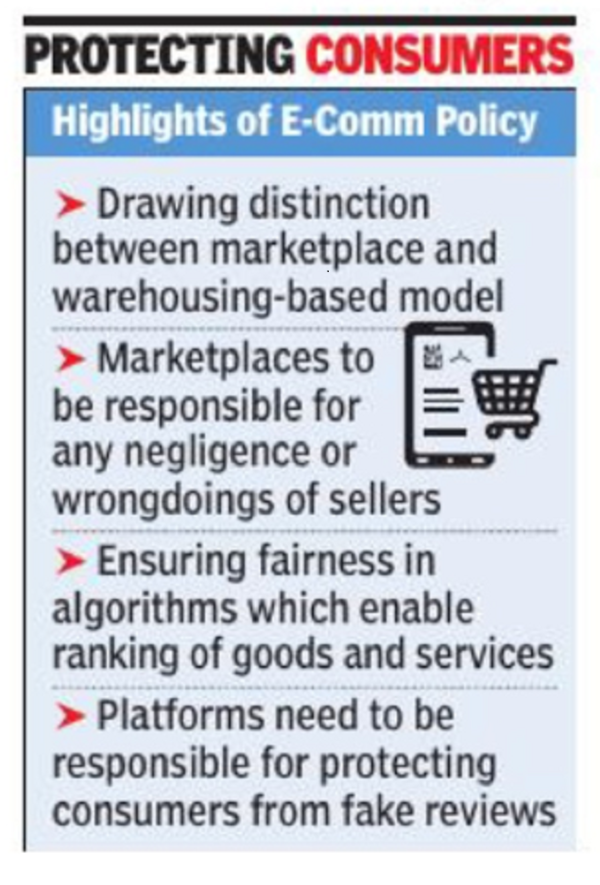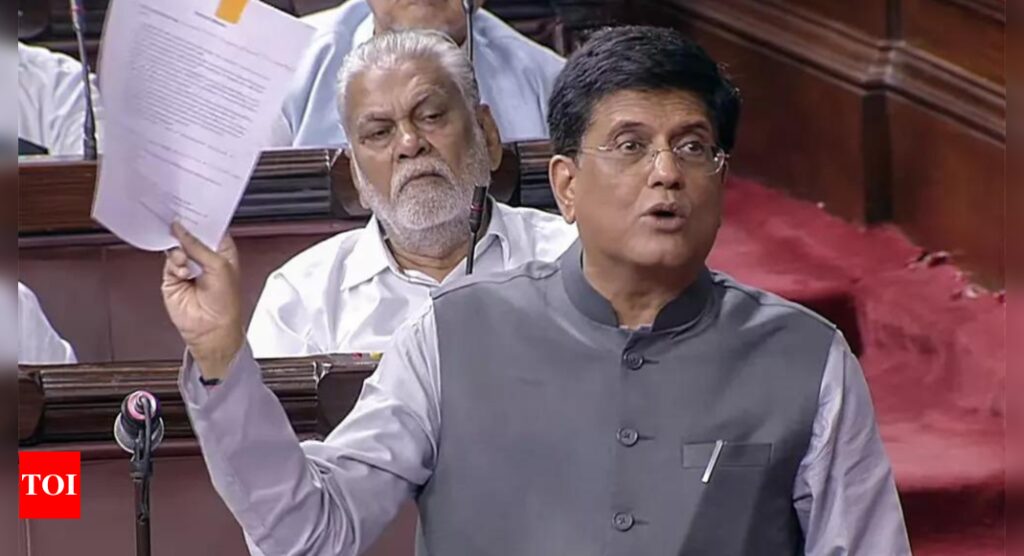[ad_1]
Listing out the six core principles, the government also said that there needs to be fairness in algorithms which enable ranking of goods and services, while providing a similar treatment and accessibility of logistics services and payment gateways. Several elements have already been notified.
Further, the platforms need to be responsible in protecting consumers from fake reviews as fall-back liability will be on marketplaces.
Following a meeting of companies with commerce and industry minister Piyush Goyal, who also handles the consumer affairs portfolio, government officials said that there was “total consensus” with industry, while company representatives told TOI that the policy and the e-commerce consumer protection rules, which will be notified soon, will complement each other and there will be no overlap.

Not all companies are, however, content with the outcome of the meeting. “It seems like the authorities have already got a fix on the policy and it was just a meeting to notify us that they will be out soon. Nobody raised any concerns today because it was not the right forum to do so,” said an e-commerce company.
“We are still very concerned about the fallback liability clauses that are part of e-commerce rules,” an executive with an e-tail company said, adding that the marketplace has little control over the goods offered by a seller. “Can a food delivery app be held responsible for poor quality food served by a restaurant?” he said.
Amazon, Flipkart, the Tata Group, Reliance, Meesho, Zomato, Shiprocket and traders’ organisation Confederation of All India Traders (CAIT) attended the meeting.
[ad_2]
Source link










More Stories
India’S Growth Forecast: S&P ups India’s FY’24 growth forecast to 6.4% on robust domestic momentum
India to remain fastest-growing major economy, but demand uneven: Poll
Jack Ma: Jack Ma gets back into business with ‘Ma’s Kitchen Food’